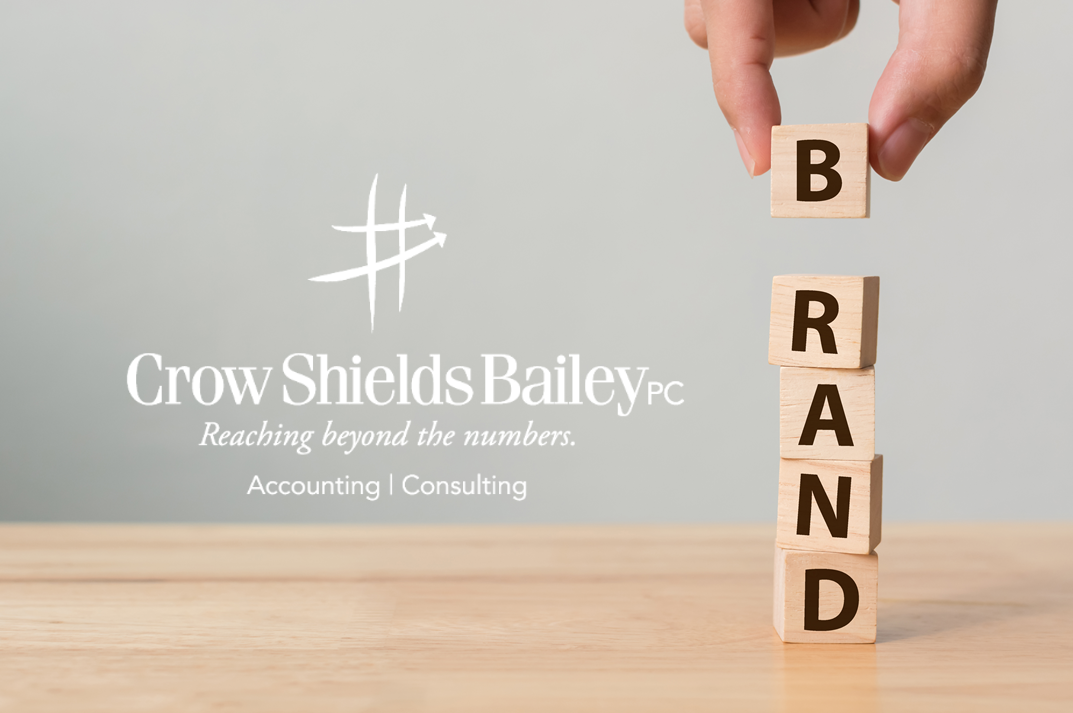 August 23, 2021
August 23, 2021
Emilee Shuler | Marketing Assistant | Published by Crow Shields Bailey PC
Personal branding is vital for professionals of every age and stage in their career to understand. Professionals should consider branding to be an outward representation to the world of the sum of their values, goals, interests, and skills.
While, in essence, building your personal brand is about selling yourself, it is very important to be genuine and organic in your efforts. The process of learning and developing your personal brand involves an element of self-analysis that will also lead to a great deal of personal growth along the way. Your personal brand is the combination of your own unique identity and your reputation. Intentional and thoughtful personal branding will help you to stand out in a sea of other highly qualified peers.
Looking Inward
The first step is to ask yourself, “Who am I?”
- What are your skills?
- These should include both technical and soft skills.
- What are your interests?
- This should include your professional interests and your personal interests.
- What are your values?
- These should also include both your personal values and your professional values. If these conflict with each other, then branding is not the biggest project you need to be tackling right now.
Next ask your friends, family, and peers, “Who am I?”
- What do they think your skills are?
- What do they most enjoy discussing with you on a personal or professional level?
- What do they believe are some of your values?
Finally, ask yourself what it is you would like to achieve.
- What are your personal and professional goals?
- Do they align with your values, interests, and skills?
It may seem daunting to explore these ideas, but it is a critical step towards building your authentic brand. Personal and professional goals are constantly changing and values and skills evolve as people grow in their lives and careers. You will need to revisit this process often in order to make sure your brand is still an accurate reflection of all of these things.
Building Your Brand
Once you have answered these more introspective questions, it’s time to start building your brand. It is at this point that you will put to work what you gleaned in the beginning of the process. What knowledge, experiences, goals, skills, and passions can you use to promote yourself to employers and peers?
What will be your main avenues of promotion?
- Which social media platforms should you utilize?
- Typically, LinkedIn is the platform that has the most focus on professional achievements and accolades, sharing best practices, and networking and interacting with peers in your industry and others. LinkedIn should be a priority for all professionals.
- Make a point to follow and interact with other leaders in your industry. Share, like, comment, and take part in their conversations. This will give you visibility and help you gain followers organically.
- Even on more casual platforms such as Facebook, Twitter, and Instagram, you should always consider whether the image you are conveying aligns with the values and goals presented by your brand.
- Typically, LinkedIn is the platform that has the most focus on professional achievements and accolades, sharing best practices, and networking and interacting with peers in your industry and others. LinkedIn should be a priority for all professionals.
- Should you consider writing a blog?
- If you feel that you have useful insights to share, a blog is a great way to promote and establish yourself as an industry leader while also sharing helpful knowledge with others.
- What networking opportunities should you utilize?
- Always be on the lookout for continuing education courses, networking events, and any opportunities to have conversations with people. Never underestimate the power of networking. Not only are you gaining and sharing valuable knowledge and making meaningful connections, but your network of peers is also part of your brand and should be a reflection of your values and interests.
How will you stand out from the crowd?
- What makes you unique?
- Use your unique personality, talents, passions, experiences, and abilities to connect with people to differentiate yourself.
- Do you have any professional specializations or certifications that you should highlight?
- How will you stay up-to-date on industry trends?
- Subscribe to reputable sources of information for your particular industry. Use continuing education to bolster your knowledge and stay current with best practices, trends, innovations, etc. This will ensure that your content and conversations are always relevant.
The beginning stages of introspection will guide you in the process of building your brand while simultaneously helping you get to know yourself and your goals better. By defining your identity, developing a strategy for promotion, and letting your personality shine, you can build a very effective personal brand for your personal and professional life.





